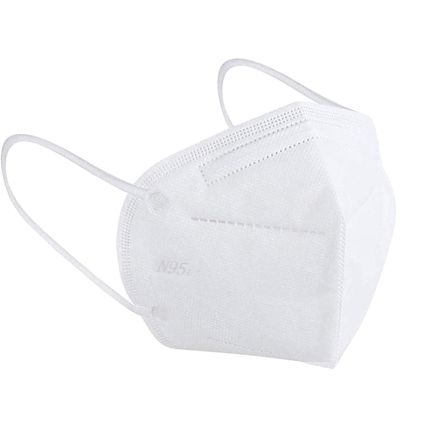How to Check Quality of Medical Face Mask

We’re smack dab in the middle of the COVID-19 pandemic with little to do but lock ourselves indoors as much as we can help it. This is not always feasible, however. So, when you do have to head out, make sure to strap on your face masks first. With so many different kinds of face masks out there, how can you tell them apart vis-a-vis quality?
There are a few different kinds of face masks that help prevent the spreading of diseases (in this particular case, a viral infection). From surgical masks to an N95 respirator, there are a bunch, but for the common man, it is important to keep the medical face mask stock intact for the medical professionals. It has been shown in studies that for non-medical professionals, a cloth mask should suffice while going outside.
How to Know if a Medical Mask Actually Works?
If you’re wondering who would require the kinds of face masks that are built to prevent the spreading of the novel coronavirus, it is the medical professionals and other public workers. Keep in mind, however, that there are many masks that are not up to the mark, vis-a-vis quality. In order for the masks to truly protect people from the virus, they must be defect-free and go through stringent ISO standards. Since the existing supply has skyrocketed in a very little timeframe, it is not possible for all of them to go through these ISO standards. This does not mean that the quality of the masks can pass as “doable” without going through the standards. It merely means that the quality of the masks should be checked rigorously and defective products reaching the market must be prevented.
What are Some of the Flaws in Medical Masks?
If you’re wondering about the obvious signs you can spot in a defective medical face mask, there are a few. For instance, you can check for embedded hairs or stains, check for the presence/absence of straps (quick tip: they’re supposed to have them), measuring the width of the mask and making sure they match the required standards and ensuring that the straps are securely attached onto the mask.
Why Medical Face Masks Matter More Now Than Ever
Coronavirus is called the “novel coronavirus” simply because it is new: this means that our immune systems have not been exposed to it before. It is not like the seasonal flu that we have encountered before and even gotten shots to prevent it. One of the biggest worries about the novel coronavirus is that it has spread worldwide in a matter of weeks. Infecting a concentrated number of patients, and striking over 100,000 down in a span of months. But what’s worse? People struck by the virus must be self-quarantined and keep their distance from the rest of the world. Medical professionals, however, do not have that luxury. They work day and night, tirelessly trying to help patients. This is why medical face masks are of extreme importance now more than ever. Especially because coronavirus is tricky. Almost 25% of people who have it feel completely fine. So, while they are infected and still feel fine, they could be (highly) contagious.
How to Choose Your Medical Face Mask
Almost overnight, the world around us has masks strapped onto their faces at all times. These masks are of varying shapes, colors and styles. How do you know which one to choose, if you’re a medical professional?
N95 Respirator Masks
These masks are built to fight tight around your face with a high filtration capacity. It blocks out almost 95% of particles even 0.3 microns in size. This mask is meant for medical workers especially, those who interact with high numbers of patients with the virus and perform medical procedures on them, thereby coming in close contact with them. The rest of the world does NOT require this level of protection, so keep in mind that these masks SHOULD be reserved for healthcare workers only.
Surgical/Medical Masks
These masks also are in short supply and should only be used by medical professionals. They are also referred to as procedure masks and are rectangular, often pleated. They have elastic ear loops and composed of paper-like non-woven material. At hospitals, you will find them strapped around coughing patients waiting to meet with their doctors. This type of mask filters about 60-80% of particles and blocks out large droplets, splashes, and splatter.




